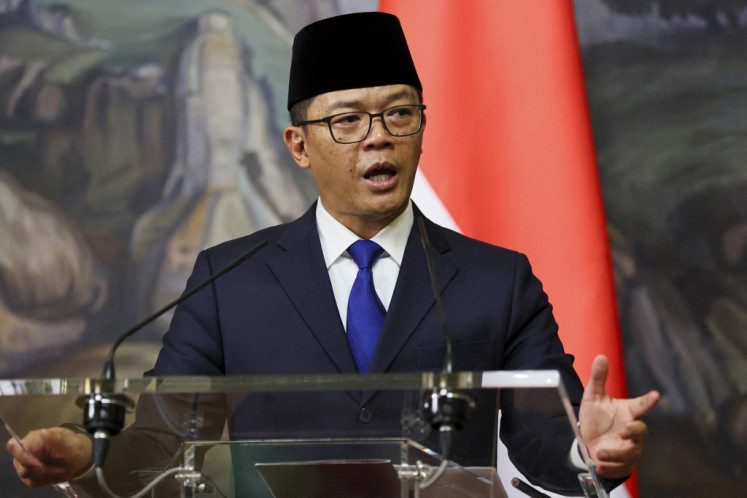Popular Reads
Top Results
Can't find what you're looking for?
View all search resultsPopular Reads
Top Results
Can't find what you're looking for?
View all search resultsRI could grab 45 percent of global carbon trade: NGO
Indonesia, home to the largest tracts of tropical forests in Asia, could grab 45 percent of the world’s carbon trade if the government issues carbon-related policies, an analyst said
Change text size
Gift Premium Articles
to Anyone

I
ndonesia, home to the largest tracts of tropical forests in Asia, could grab 45 percent of the world’s carbon trade if the government issues carbon-related policies, an analyst said.
Agus Sari from iklim karbon, an NGO focusing on carbon trade information dissemination, said Indonesia could have 45 percent of the world’s carbon trade because of its vast size and climate.
“To tap this potential, we need enough information on carbon trade mechanisms. Next is to encourage people and investors to join in financing,” he said during the discussion of the book Chances and Mechanism of Forest Carbon Trade at the Forestry Ministry.
Agus said the carbon trade via the clean development mechanism (CDM) was worth US$150 billion two years ago. Unfortunately, he added, Indonesia could not benefit from the CDM because the country was late in ratifying the Kyoto Protocol. He said he hoped the government could prepare for future carbon trade by issuing carbon trade regulations.
Agus said the government had to clearly define carbon trade policies such as who held the right to trade carbon credits — project developers or concession holders — as this would determine who would benefit from the trade mechanism.
He said he believed if the policies were clear, more people would invest in the carbon trade.
“Carbon trading is like any other business. People need to put in an amount of money and can get a
return a few years later.”
In September 2009, President Susilo Bambang Yudhoyono committed Indonesia to a 26 percent reduction in greenhouse gas emissions by 2020, and up to 41 percent reduction with international assistance, while growing the economy at 7 percent per year at the same time.
One of the efforts was a much-criticized two-year forest moratorium that the government recently signed with the government of Norway.
Agus said if the government involved the private sector in the carbon cut project, the government would not need to seek financial help from abroad.
He said he was optimistic local investors would benefit if they were allowed to participate in carbon trading.
Forestry Ministry director general of forest utilization Iman Santoso said the ministry’s research and development center should carry out studies to find unique tree species that could sequester more carbon. He said if such trees were found, Indonesia could increase its bargaining power in the carbon trade.
“Indonesia has ecocultural aspects that differentiates it from the other countries. We also hope we can trade in the carbon we offset through the forest moratorium,” he said.









